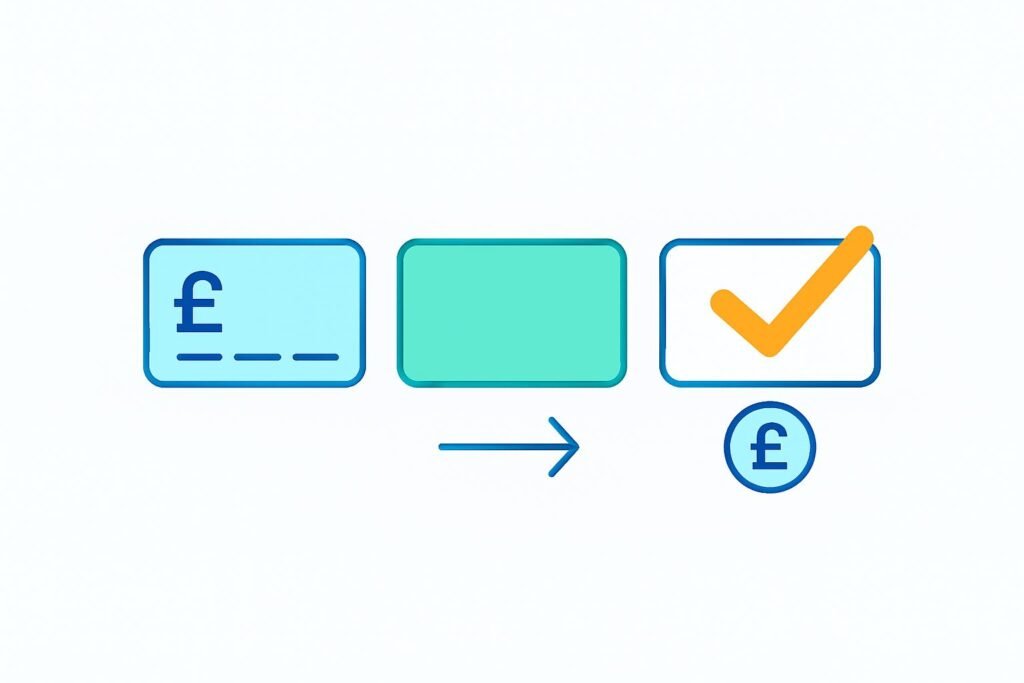
There’s no rule that says you must open a separate business bank account when you start working as a sole trader.
In theory, you could use your personal bank account to receive client payments, pay suppliers, and deal with other business-related transactions.
But just because you can do something, it doesn’t mean you should.
There are several practical reasons to open a business bank account and keep your business and personal finances separate.
This guide explains why. It also covers:
- How opening a business bank account works in practice
- What to think about before choosing a sole trader account
- Some of the stronger options currently available
What’s in this guide?
- Why open a business bank account as a sole trader?
- How do you open a business bank account?
- Choosing a business bank account: 3 key things to consider
- Should you open a business savings account?
- Tide Business Bank Account – £50 cashback exclusive!
Why open a business bank account as a sole trader?
There are four main reasons many sole traders choose to open a business bank account:
- Simplicity
- Access to business-focused features
- Avoiding issues with your bank
- Presenting a more professional image
Keeping things simple
As a sole trader, you are responsible for keeping complete and accurate records of your business income and expenses.
Using a single account for both personal and business spending makes this more difficult than it needs to be. You have to manually separate transactions when reviewing statements, which is time-consuming and error-prone.
This also affects tax calculations. Personal spending cannot be deducted as a business expense, so it must be removed before working out your taxable profit.
A separate business account avoids this problem. All transactions relate to the business, making record-keeping clearer and giving you a better view of cash flow.
This directly links to your broader bookkeeping responsibilities. See bookkeeping for sole traders for more.
Getting more out of your account
Business bank accounts often include tools that personal accounts do not. These can include invoicing features, spending breakdowns, tax estimates, cashback, and discounts on other services.
Used properly, these features can reduce administrative work and save time, particularly when integrated with accounting software.
If you’re comparing options, see our guide to sole trader bank accounts and our overview of business accounting software.
You can also see how bank feeds work with popular platforms here: Tide and Zempler with Xero, FreeAgent and QuickBooks.
You could be breaching your bank’s terms and conditions
Although there is no law stopping you from using a personal account for business, many banks prohibit it in their terms.
If business use is detected, the bank may restrict or close the account. That can leave you without access to funds while you scramble to open a replacement.
See also some common banking traps sole traders fall into.
Having a business bank account looks more professional
If you trade under a business name, a business account allows clients to pay into an account that matches it.
This reassures customers, allows card payments and cheques to be made in the business name, and helps establish credibility, particularly for newer businesses.
Trust matters when selling online. Research suggests 81% of consumers feel concerned when buying from unfamiliar websites.
How do you open a business bank account?
Most banks now allow you to apply online, although opening a business account usually involves more checks than opening a personal one.
Some providers still require a phone call or a branch visit. All will ask for personal details and basic information about your business.
You can usually expect to provide:
- Proof of identity, such as a passport or driving licence
- Proof of address, such as a utility bill or Council Tax bill
- Your business name and address
- An estimate of your annual turnover
Banks may also ask about payment volumes and the sources of funds. This helps them identify unusual activity.
Digital providers often use additional identity verification methods, such as selfies or short-video verification. In many cases, accounts are approved within hours.
See how long it usually takes to open a sole trader business bank account.
You may also want to understand protection and costs before choosing a provider. See our guides on FSCS protection for business accounts and business banking charges.
Choosing a business bank account: 3 key things to consider
With both high street banks and digital providers competing for sole traders, the challenge is choosing the right fit.
1. How do you typically pay or get paid?
If most payments are by card or bank transfer, a digital account may be sufficient.
If you handle cash regularly, a high-street bank with a branch is usually more practical.
If you work with overseas clients, exchange rates and international fees can make a significant difference.
See card readers and merchant accounts, and using multiple business bank accounts.
2. How do you like to bank?
If you are comfortable using an app and managing everything digitally, online-only providers are often the simplest option.
If you prefer face-to-face support, high-street banks may feel safer, though fees are usually higher.
App store reviews can give a reasonable indication of how usable a banking app is in practice.
3. What else do you want from your bank?
Many banks now offer additional tools and perks.
- Cashback on business spending
- Discounts on software and professional services
- Invoicing and reporting tools
- Templates and business resources
Focus on features you are actually likely to use.
Should you open a business savings account?
If you regularly set aside money for taxes or future expenses, leaving it in a current account that pays no interest is rarely ideal.
A business savings account can help protect surplus cash and generate some return.
Common options include easy access, notice, and fixed-term accounts.
Deposits are protected up to £120,000 under the Financial Services Compensation Scheme.
Sole traders should note that personal and business funds are combined into a single total.



